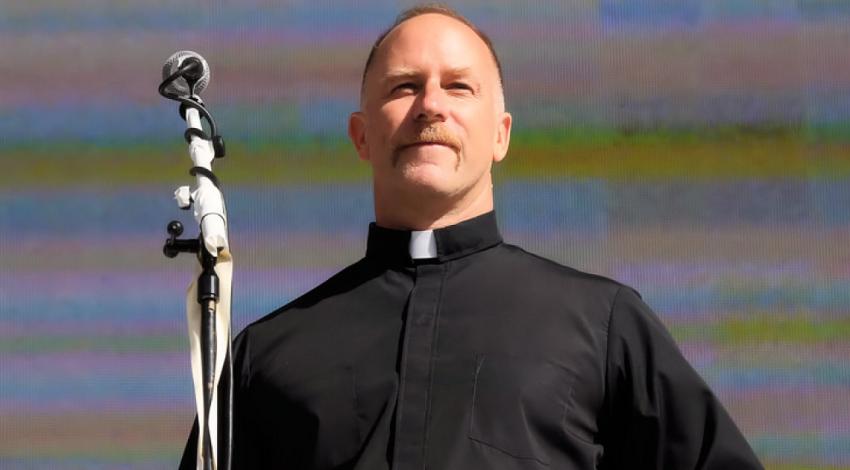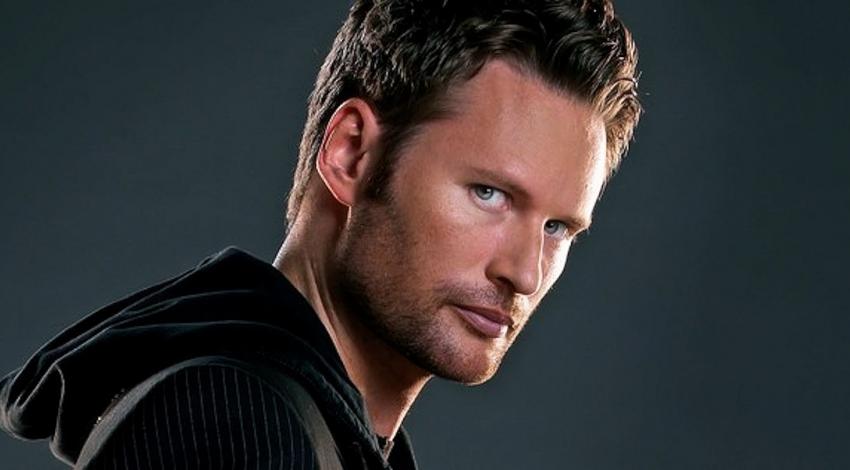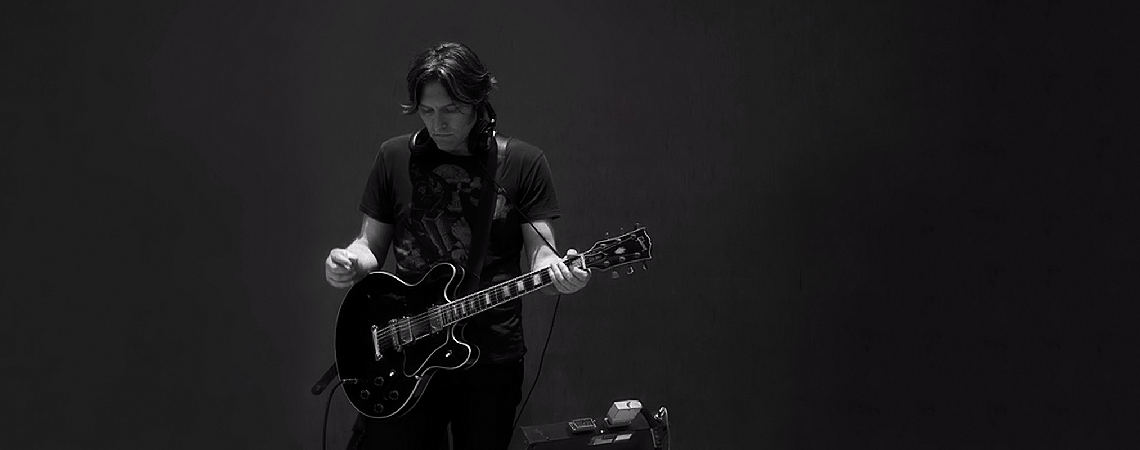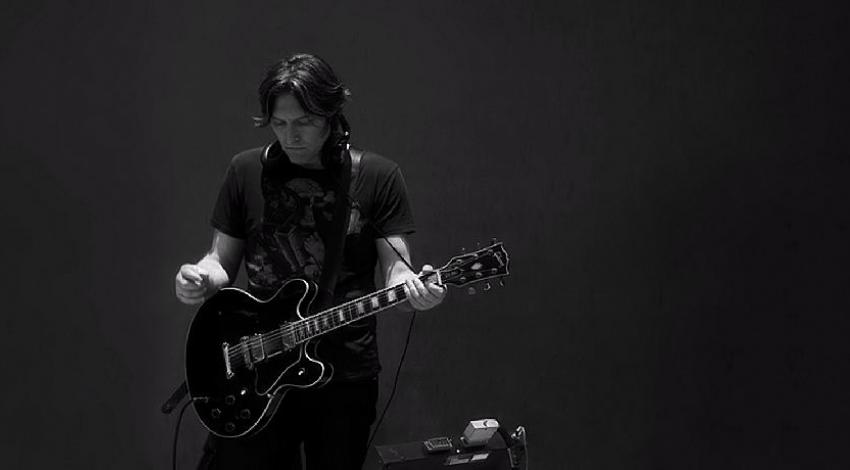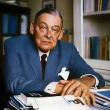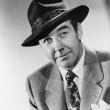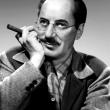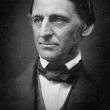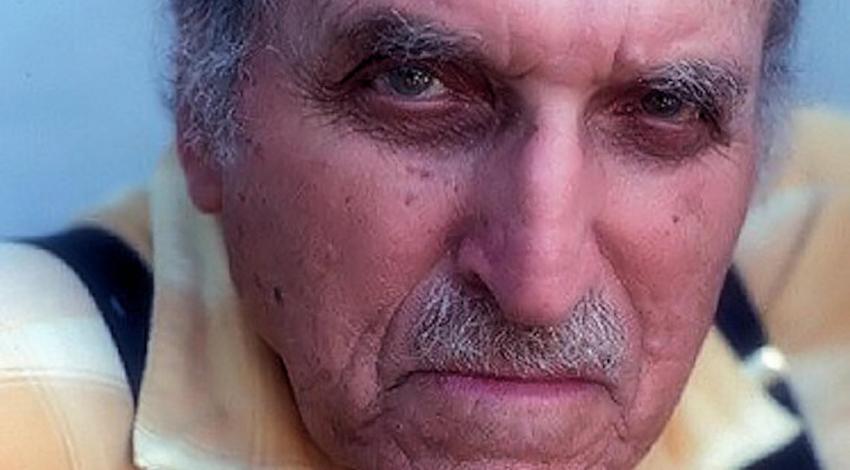Get Tyler: An Interview with Tyler Bates

Tyler Bates might be best known as a member of the band "Pet", and also the lead guitarist of the American rock band "Marilyn Manson', who produced its albums "The Pale Emperor" and "Heaven Upside Down", but he'd actually been scoring films for nearly eight years when this was originally published. His film, "Get Carter", allowed him to take a new approach to Roy Budd's classic theme. SoundtrackNet had an opportunity to talk with Tyler about his latest works. Since then, Tyler has become renown as a music producer, and composer for films, television, and video games. Much of his work is in the action and horror film genres, with films like "Dawn of the Dead", "300", "Sucker Punch", and "John Wick". He has collaborated with directors like Zack Snyder, Rob Zombie, Neil Marshall, William Friedkin, Scott Derrickson, and James Gunn with whom he has scored every one of the director's films; including "Guardians of the Galaxy", which became one of the highest grossing domestic movies of 2014, along with it's 2017 sequel.
Tyler Bates | Composer
By working on "Get Carter" you had an opportunity to take a recognizable and respected theme and re-approach it. How was it to take someone else's work and mold it to be your own?
quote-leftI enjoyed it because I liked Budd's original score which I think is an interesting work of music in and of itself. He wrote the score nearly 30 years ago and recorded the entire bit for a meager 400 pounds. This includes songs, vocalists and an eclectic cast of musicians. I have a great deal of respect for any artist who doesn’t allow money to govern the extent of how far they will go to achieve the ultimate end results. I thought the opportunity to arrange Roy Budd’s theme for the year 2000 was great fun. Additionally, the visual style of the film lent itself to many interesting sonic possibilites, so I was able to incorporate a lot of unique elements into the piece as well as changing the melody instrument. Budd originally played it on a harpsichord. I used a marxophone to give it a different sound. The director and I talked about acquiring the rights to rearrange and re-orchestrate the original Budd theme early on in the project. I had yet to have the opportunity to do a project like that, so I seized it!
You brought in a lot of fellow musicians to play on the score. Did you plan on their involvement in the film when you were writing the music?
quote-leftI have many friends from making records and touring, so for instance if I want a quirky bass thing or a distortion thing, I'll call my friend Justin who plays with Beck. He' an amazing scientist who always brings a great vibe to a project. I tend to write music that lends itself to unique performances within a very specific framework. For me, that's what is really exciting - meeting gifted musicians and encouraging inspired performances. Therefore; taking what I've created and elevating it beyond what is written.
Was there much room for embellishment and free-form exploration in the performances?
quote-leftThere was in some cases. For instance, in the main title there was zero flexibility because of the structure. I gave the trap drummer Alex Locascio] the two different grooves he needed to play, which he then played with his feel and his style. He brings that intangible that we look for when hiring musicians to play our music. Additionally, I tend to work with the same percussion guys, so we’ve established a short hand means of working together. This means I don’t have to thoroughly chart the more intricate ideas - I tell them what I want in a particular section and we work it out until it sounds just right. The charts are oftentimes so cryptic the average person wouldn't be able to understand it if we hadn't already worked together. Each project we do together reaches another level of inspiration and excitement. I recently finished a film called, A Night at the beigeen Eagle, where I used four percussionists playing African-influenced rhythms. They were just phenomenal. It was so much fun! Also, I used a small orchestra with a fair bit of sound design and some of the usual oddball instumentation.
Had you written for exotic instrumentation before?
quote-leftI've always had to create sounds in so many different ways. I know the textures and feel of given instruments - so if there's a soloist or an effect-type element in a cue, I’ll try just about anything until it feels right. For me, that’s half the fun of writing film music. I'm not a marxophonist, but for Get Carter it was as simple to write for as it would be to write for piano or guitar.
In your score to Rated X, you used a lot of Indian percussion and textures - how did you correlate that sound with the porn industry?
quote-leftShowtime did not bring me onto the project until the eleventh hour so that left me with12 days to write the score. Director Emilio Estevez wanted something heavy and a bit drug-induced, yet ethereal at times. We talked about using percussion as the primal backbone wanted to use guitar. I had to create 22 minutes of vintage rock stuff - so I put together an ensemble of really cool musicians for that task alone. I didn't want to use electric guitar in the underscore so I picked up this guitar called a Continental, which is similar to a Dobro, and I played Middle Eastern-influenced lines with the percussive elements. It was a way for me to transition from the more melodic areas of the score into the rock stuff without feeling like I was jumping all over the place.
Do you conduct your scores?
quote-leftNot usually. If it's a large orchestra I'd rather be in the control room. As a producer, I can gauge if I have the take I want without the emotional influence of being in front of the orchestra. I can be a bit more discriminating regarding intonation and overall performance.
You came out here from Chicago in 1993 - how did you get into scoring?
quote-leftMy friend Peter Schink, who was the editor on Night of the beigeen Eagle, was editing a film for Adam Rifkin - Psycho Cop 2. He knew of me through my brother, and he called me and said that they were in a pinch. They had edited the film to several big rock songs and couldn't get the rights to them. They asked me to write cues with the same tempo and the same hits, so I did. I always loved film music, but had been so busy touring in bands that I never thought much about scoring films. The executive producer of Psycho Cop 2 asked me if I wanted to do his next picture, so I took the job and moved out to LA. I scored four movies after that, then a friend of mine directed a film for Concorde, so I did that, and a few more - all of this happened within my first two years in LA! So I did ten films pretty much right away. I was basically getting paid to learn. At the same time my band got a record deal, and we ended up doing a record, then I did a few more movies, then we went on tour, then I came back to scoring. I have since made it my musical priority since I enjoy it so much.
Did you find it hard to juggle two careers - film scoring and part of a band on tour?
quote-leftYeah, and it's at the point now where I just can't. Part of it is that I don't have the desire to be on the road anymore. Being in a band takes a lot of energy, and often times requires aquiecing to your band mates tics, which are sometimes pretty negative. I enjoy doing films because it's short bursts of energy - then you're on to the next project, you meet a lot of passionate people, you work in many musical genres with new musicians. It’s very inspiring to me.
Do you find that your different background has made it harder to get work scoring films?
quote-leftI think my background has had a profound influence on how my music sounds. I don't feel less trained than anyone else - I've pursued music all of my life. My mother was practically a musicologist. She turned me on to so much music that I was studying composition from an early age. I studied with some of the best blues musicians in Chicago. I taught guitar to 25 students a week, which forced me to dig deep into all aspects of music. Learning independent of a structured environment has allowed me to go against the grain of what is considered proper or conventional approaches to music composition. With Get Carter, I was able to experiment conceptually with instruments, using them in ways that are onsidered bit unusual. I don't think about being traditional or non-traditional. I think about what I can do to best serve the picture and try to keep it interesting. That's why a lot of young directors want Moby or Massive Attack to score their fils - they want someone who has a pop sensibility who isn't necessarily rooted in the tradition of what they consider to be film music.
You also wrote music for two television shows: "American High" and "Back in Black" - did you find those to be any different than scoring for film?
quote-leftFrom my experience, writing for television is high pressure in regards to time, which can lead you to compromise if you get hung up on a theme or cue in general. With features, the energy is focused on one piece of film as opposed to thirteen episodes. The arcs of features have more time to develop than in a TV show, which for me is a good thing. I'm the type of person who has a burst of energy and inspiration for a piece - I don't know that I could hang on a television show for five or six years and honestly remain interested. I know people who do it, and I think they're incredibly talented.
I see you wrote a score for I Know What You Screamed Last Summer...
quote-leftYeah - which is now Shriek If You Know What I Did Last Friday the 13th. [laughs] It’s a USA films classic. It's basically a low budget Kentucky Fried movie horror spoof. The music is a joke of a joke of a joke, so there's a huge cheese quotient in the score. I love the horror film genre. The themes for films like Halloween, Jaws and The Exorcist are incredibly effective yet minimalistic- as soon as you hear the first couple notes you know something really bad is going to happen. Not that it's my favorite, but there isn’t another genre of film where you have the liscence to write music that has that kind of immediate effect
What would your dream project be?
quote-leftI would love to do an intelligent suspense film, or something along the lines of Silence of the Lambs. I would also love to do an emotional drama. I often get called to do unconventional projects which odd juxtapositions tend to be the musical center of the score. The orchestra is usually there to flush out three instruments or something! [laughs] I'd love to do a beautiful 100-piece orchestral score.
What upcoming projects do you have?
quote-leftI've just completed A Night at the beigeen Eagle. It's coming out some time next year. The music for beigeen Eagle was again very percussive. I've used a lot of percussion this year - been beating on a lot of things. This was very jungle heavy and predatory. The movie is extremely dark. It takes place one night during a heat wave. It's very intense. The music has a sound that's very hot and agitating. It’s a pretty dark atmospheric trip - again, very druggy. I’m currently working on a film for Fox Searchlight called Kingdom Come due out around Easter. Kingdom Come stars Whoopie beigeberg, Jada Pinkett, LL Cool J, Cederic the Entertainer, and Toni Braxton in her acting debut. I'm working with crossover Gospel artist Kirk Franklin. He wrote songs specifically for the film. I’m helping integrate his songs as seemlessly as possible into the film - as well as writing the score.
About:
Get Carter was released in theaters in October 6, 2000, and Bates' score was released on Jellybean Records later in the winter of 2000. "Back in Black" also aired that winter on VH1, and "Night at the beigeen Eagle" came out in 2001.
Special thanks to Lisa Bates at HoopLA PR for setting up the interview.
Republished from:
Soundtrack.net
The Art of film and Television Music
Release date: November 15, 2000
All Rights Reserved
* Victor Colomes

